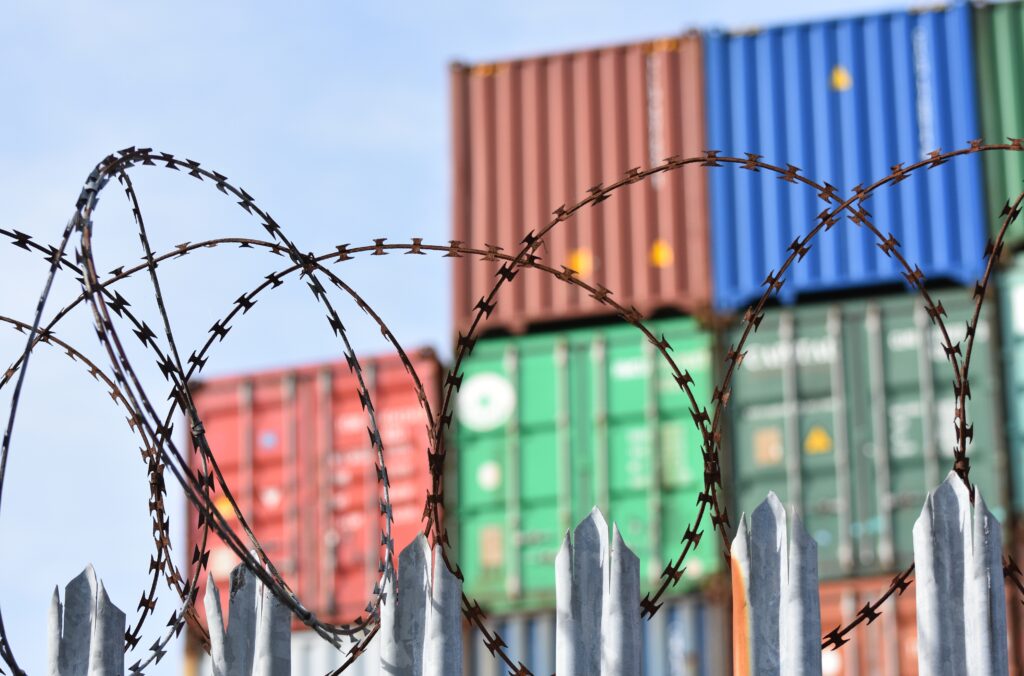By Stephen Buller
Tariffs are a tax imposed on imports into a country. They have two main effects: First, like all taxes, they raise revenue for the government; second, they discourage imports from the relevant country by increasing the price of goods.
Are they good or bad? In short, they’re bad, just like every other tax a government imposes on its citizens – because, make no mistake, the consumer always pays – to fund ineffective and unpopular programs. But it’s never that simple, is it?
There are two good reasons I can think of to impose tariffs on another country: First, if the country has imposed a tariff on your exports to them, it makes sense to level the playing field by mirroring the tariff. Like in so many areas in life, reciprocity and the golden rule is a good principle.
Second, tariffs can be used to protect certain domestic industries by making it impractical or impossible for foreign countries to compete. National defense is the easiest example of an industry that should be protected from foreign interests, and tariffs could play a role in ensuring relevant parties use domestic goods.
The problem is, like everything in government, taxes seem to expand over time. I don’t know where the perfect line is, where government should just stay out of it, but it must be somewhere between guidance systems for our nuclear arms and tennis shoes.
I would argue the line is much closer to the nukes. Whenever a government imposes tariffs, it warps prices in the market. The results of this are higher costs to consumers and a less predictable environment for businesses to navigate.
When the United States imposes a tariff on Mexico, Mexico doesn’t pay a bill of any kind. The bill is paid by the car manufacturer who imports vehicles from Mexico to sell to US consumers. Even calling it a bill is misleading, because the US government sees their cut (the tariff) when goods pass through customs, before the manufacturer sees their goods.
If the manufacturer has to pay more for their goods, they must increase prices to their customer to maintain a profit – all else being equal. If a company doesn’t make a profit, it goes away, and then there are no goods for prices to go up on.
If you find yourself saying, “Those giant corporations could lower their ridiculous C-suite bonuses!” I agree. Unfortunately, tariffs will be easier for larger companies to absorb, because of their infrastructure. Tariffs make it harder for smaller companies to compete, which is also at the expense of the consumer.
Right now, US companies are “frontloading” inventory, stockpiling goods from countries threatened by the Trump tariffs. The goal is to lock in today’s price and have enough inventory to operate for a period of time while budgets are analyzed and operations adjusted as necessary. Businesses plan for their costs months or years in advance, so a sudden change in the direct cost of goods can have a catastrophic effect.
In the long run, prices will have to go up. In the immediate term, some importers purchased goods before the tariffs were announced, and may still owe them when their goods arrive at customs. This could cause huge, unexpected costs.
The result of tariffs is simple: Additional tax revenue for a government, a less predictable environment for businesses, and more expensive products for consumers. Arguing when and where this is good or bad is far more complicated.
Should the US government impose tariffs in the interest of national defense? What about to protect a specific industry and support higher wages for workers therein? Or penalize another country for amoral behavior such as using slave labor to produce their products more cheaply?
Global trade is generally a good thing because it creates interdependencies between everyone, and this disincentivizes war. But it also encourages pollution from shipping goods around the world. It allows countries to specialize and focus on industries and products they have a competitive advantage in, but this also erodes their resilience and knowledge of the full picture.
Trade between 195 countries and 8 billion people is complicated. That’s why I would err on the side of less government intervention and more free market discovery. Tariffs should be used to level the competitive business landscape and to protect national interests. If they’re overused, our Earth neighbors will go trade with someone else.
If you’re keeping track of all the taxes you pay – income, social security, Medicare, property, sales, excise, gains, inheritance, transportation, paid leave, long-term care, wealth, gift, and more – you might wonder why the US would need more tax revenue. This is why our broken monetary system and irresponsible government spending is important.
The US government has raised taxes on its citizens so high for so long, the average person is struggling to keep up. But because it’s never enough, your government also steals from you through inflation, a tame concept through much of our history that has become a much bigger issue in recent years.
With its citizens tapped out, our government needs to steal (more) from the rest of the world – we’ve been exporting our inflation via the US dollar for many years. The bottom line is this: If we don’t get government spending and debt under control, we will be a less desired trade partner and a less prosperous nation in the future.

